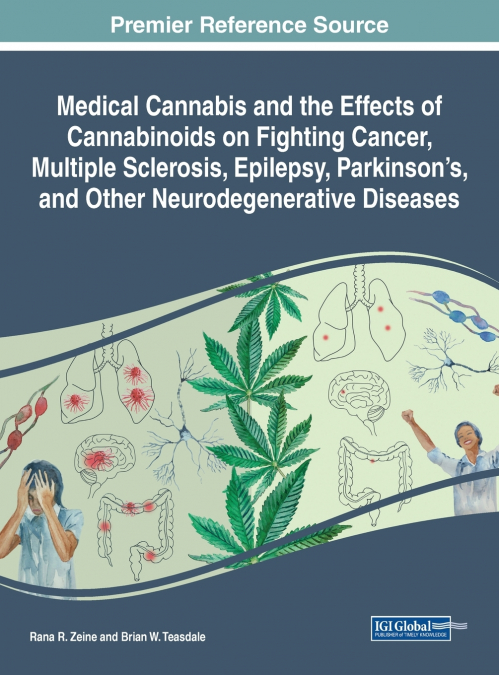
Research on the therapeutic efficacy of cannabinoids has demonstrated that cannabidiol (CBD), either alone or in 1:1 mixtures with delta-9-tetrahydrocannabinol (THC), can effectively treat animals in experimental models of neuroinflammatory, demyelinative, neurodegenerative, neuropsychiatric, and neoplastic diseases. Short-term, small-scale, human cohorts, observational studies, randomized, non-randomized, placebo-controlled, and uncontrolled clinical trials have provided low-certainty and moderate-certainty evidence that medical marijuana can reduce spasticity, neuropathic pain, neuroinflammation, anxiety, sleep disturbance, urinary bladder dysfunction, frequency and duration of seizure, tumor size, and metastasis as well as promote overall cancer survival. Medical Cannabis and the Effects of Cannabinoids on Fighting Cancer, Multiple Sclerosis, Epilepsy, Parkinson’s, and Other Neurodegenerative Diseases presents the findings from clinical and basic medical scientists who are investigating the cellular and molecular mechanisms of cannabinoid-mediated inhibition of innate and adaptive immune responses, mobilization of myeloid-derived immunosuppressive cells, enhancement of neuroprotection, facilitation of oligodendrocyte survival, promotion of CNS progenitor cell differentiation to support regeneration and remyelination, arrest of tumor cell proliferation, decrease in tumor cell adhesion, disruption of tumor angiogenesis, inhibition of endothelial cells, and prevention of cancer metastasis by inhibition of cell migration. The chapters further discuss pharmacologic challenges and precisely how the delicate balance between the opposing effects of various types of cannabinoid receptors can be controlled by manipulating specific membrane channels and signaling pathways to achieve favorable long-term clinicopathologic outcomes in oncology and neurology. Covering topics such as neurodegenerative diseases, spectroscopic applications, and ethical issues, this premier reference source is an essential resource for medical professionals, pharmacists, hospital administrators, government officials, students and faculty of higher education, librarians, researchers, and academicians.